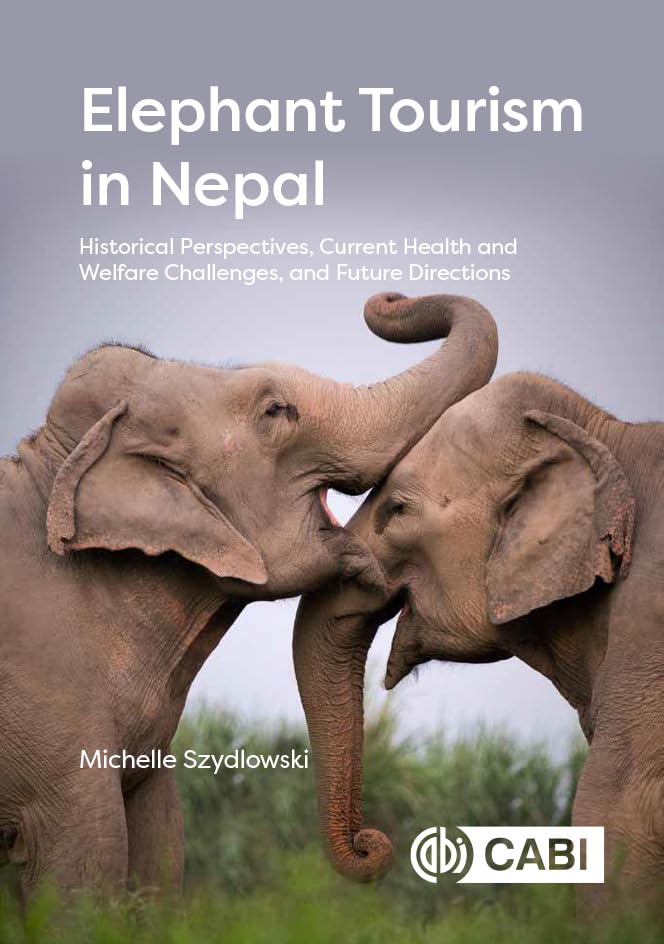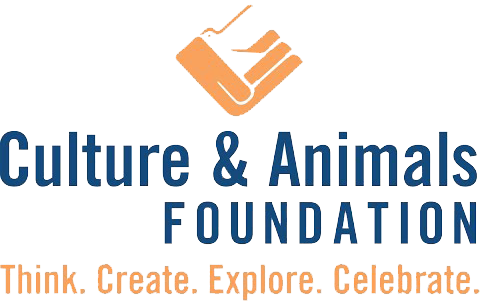Why hasn't this website been updated in a while?
You may have noticed that we haven’t been updating this website, and the reason is–it’s been a busy year. Between supervising and mentoring students, working with international organizations, hosting the 5th annual FREE student conference in Anthrozoology, and several months spent in the field, 2025 got away from us. BUT–good news, a makeover is coming featuring: fieldwork updates, elephant biographies, ways you can help elephants, and more! Our goal is to be fully updated by March 1! Until then, check out what Michelle and team are doing at the Anthrozoology as International Practice website (anthrozoologyconference.com). See you soon!

A study of elephant tourism in Nepal from its origins in the 1960s to the present day, this book examines the challenges faced by captive elephants. Used as human conveyance, on anti-poaching patrol teams, as rescue vehicles, and in forestry service, elephants have worked with and for humans for hundreds of years. However, the use of elephants in tourism is a new development within Nepal. Because the health and welfare of tourism elephants is vital to the conservation of wild individuals, this book offers an assessment of captive elephant needs and an examination of their existing welfare statuses.
Numerous NGOS and INGOs are now active in elephant lives, and numerous advocacy organizations have arisen with the goal of changing tourism practices and improving captive elephant welfare. This book seeks to examine the motivations of these NGOs and INGOs, and to consider their ethical approaches to elephant health and welfare. Are the motivations of these organizations similar enough to work together towards a common goal, or are their ethical norms so different that they get in one another’s way? Using an ordinary language and ethics framework, this text aims to identify the norms of cultures and organizations and reframe them in ways which may allow for more successful interactions.

Thank you to the Culture & Animals Foundation for their support of “The Complex Lives of Cultural Icons: A Captive Elephant Biography Project,” which attempts to engage with the ways in which Nepalese working elephants are defined and discussed. Using biography to share the stories of individual elephants in Nepal, Michelle hopes to demonstrate the need for individual animal agency and make their roles more visible in society. Biographies are a novel way to allow more-than-human animals to co-produce their identity, allowing readers to better assess individuals’ physical and psychological needs. Biographical writing encourages concern for animal lives and acknowledges their intrinsic rights.

We are grateful to SCAS for granting us a ‘Pump Priming’ award for a novel study in Nepal.
Project summary: Pet-keeping and human relations to companion-animal species (cats and dogs) in Nepal are very different from Westernised societies. “Owned” (pet or family) Nepalese dogs are typically allowed to wander freely, live exclusively outside the home, and regularly socialise with larger canine groups. Some dogs are referred to as “shop dogs,” and are allowed to inhabit spaces proximate to restaurants, butchers, and dry-goods stores. Many “unowned” dogs are fed or cared for by local community members, who contact animal-based NGOs only when medical intervention is needed. National NGOs provide adoption events, TNVRM programs, and emergency care (local vets work only with livestock, not companion animals). Prior to 2014, domestic cats (Felis catus) were rarely seen in Nepalese cities or villages. However, in the last decade, cats have begun to appear around agricultural land, shops, and in protected areas such as within the boundaries of national parks.
Chitwan National Park is one of these parks and are surrounded by small municipalities and rural villages. In these villages reside numerous livestock species, captive wildlife, free-living dogs, and more recently, cats. This project will explore the nature of the human-pet bond within this cultural context, focusing on potential risks and benefits to human and companion-animal (cat and dog) health and wellbeing. Working primarily with Nepalese residents and NGOs, this project seeks to identify how veterinary and social provision can support that bond.
Cats and Dogs? Aren’t you an elephant researcher?
While Dr. Szydlowski currently focuses on pachyderm and human relationships through a One Health/One Welfare lens, she also has a 30+ year history working with companion animals. This grant allows for collaboration with Dr. Kristine Hill and Sarah Oxley Heaney (PhD candidate), two researchers with decades of small animal rescue, free-living animal studies, and human-companion animal interactions.
This trio of researchers believes that examining multispecies communities is key to understanding and improving welfare for individuals.
Find Dr. Hill here: https://academiccatlady.com/